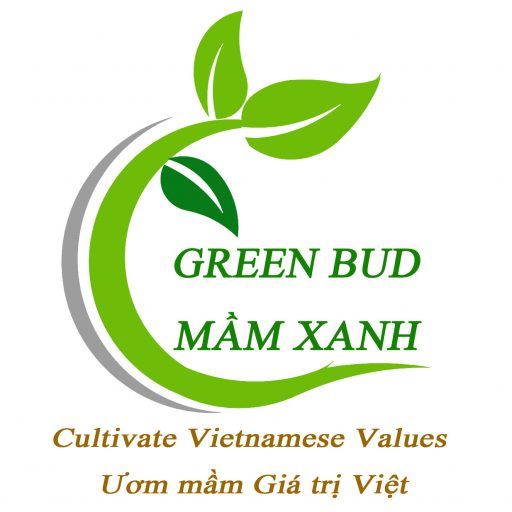Abstract
Together with the development of economics, food safety becomes a hot topic in Vietnam, especially in urban cities like Ho Chi Minh City. Vegetables are essential and the main part of the family meal and more shoppers are interested in organic vegetables. Many producers and convenience shops invested in organic vegetables, but many also left this industry because of low business.
This research will help to understand consumers’ behavior and intention on buying organic vegetables, which factor is really impacting their buying action, and how much they are willing to pay for this premium price product.
The study is based on Theory Planned of Behavior with add-in the Trust scale which is a significant impact on buying behavior on organic food when the premium price was charged. The questionnaire was developed by an in-depth interview with people working in the organic food industry. More than 150 data were collected which focused on medium and high-income employee offices and they usually shop for food.
We found out that belief in health and environmental benefit, Perceived behavior control, and Trust are a significant impact on organic vegetables’ buying intention and behaviors. And more than 80% with medium and high income are just willing to pay <20% premium price for organic vegetables, important data for organic food producers.
Main findings
This study confirmed that extended TPB as a research model is useful for explaining consumers’ organic vegetables purchase intentions and validates the claim that attitude and perceived behavioral control and Trust be a positive impact on purchase intentions for organic vegetables. Of these TPB variables, belief in environment and health benefits was found to be the strongest predictor of intention to purchase green products followed by perceived behavioral control and Trust. Consumers in Ho Chi Minh who have highly concerned about the environment and health should be the first target to sell green products as they held a positive attitude towards organic vegetable purchasing.
Another significant finding from our study is whether or not a significant relationship exists between Ho Chi Minh consumers’ perceived behavioral control and organic vegetable purchase intention. Responding to this question is of a great relationship in the green marketing field since perceived behavioral control has been considered a good predictor of individuals’ intentions to buy green products. Intentions were positively influenced by perceived behavioral control, as consistent with the previous studies.
To reduce the perceived difficulty, organic food marketers must focus on communicating the availability of products, mode of acquisitions, and variety of green products with a view to enhancing the perceived availability beliefs and consumers’ convenience by stressing its logistic efficiency. Furthermore, we found subjective norm a non-significant predictor of purchase intention identified as the weakest link in intention models. Consumers feel that approval of “significant others” is not that important a factor for buying green products, their friends/family members/peer group failed to provide any positive thrust concerning a reason for buying organic vegetables.
It seems obvious from the definition of organic vegetables that consumer trust is a key prerequisite for building a market for such products, including green and more specifically organic food products. Based on a validated, comprehensive consumer behavior model and a reliably measured multi-dimensional conception of trust, this study gives new insights into how and how much consumer trust influences the establishment of a market for organic vegetables. The consumer confusion and especially the lack of trust in Vietnam organic certification and control documented in this and other studies are indeed an additional barrier for Vietnam consumers and consequently for the development of a Vietnam market for organic vegetables. For example, in the survey, 67 % disagreed with the statement, “I have confidence in Vietnam Government controlled organic vegetables’’ and more than 62% of consumers trust the oversea product. This is really a big problem for the Vietnam government and producers.
Implications for practice
From the model examined we can see the key factor impact to buying intention is belief in the environment and the health benefit of organic vegetable. To increase buying intention of organic vegetables producers must enhance the benefit of health and environment of the product than other elements. In their marketing strategy, they should focus on these factors and try to explain how their product is healthy and free from chemicals and how is the benefit of using organic products. They need to emphasize how their product plants how can help to protect the environment and need to let customers know all the process of planting and make it public so customers can clear about the benefit together with marketing plan also to explain how good for the environment and health the product is.
The second impact is Perceived Behavior Control it shows that with the income of Ho chi Minh consumer up to now they need to reduce their cost of product and the premium price need to be below 20% to increase capacity but together with getting all organic ready in convenient store for customer easy to reach to the product, it helps a lot to improve customer buying intention.
Trust plays an important role in enhancing buying intention and behavior, especially Ho Chi Minh consumer trust in producers rather than the certification system. This make producer should invest in customer relationship rather than applying certification.
And last but not least more than 67% do not trust Government control and 62% just trust an oversea product is a challenge for Vietnam’s government and producers when they want to improve Ho Chi Minh organic vegetable market.
The research also shows that the target group for marketers is buyers, not their significant others. They are the ones to make decisions when buying organic vegetables than influenced by others. They should improve the ease and capability of purchasers through the availability and cost of the product to improve the intention of buying. The research also indicates that just 27% of consumers are willing to pay 20% more and 10% agreed to pay 40% more for organic vegetables. This is really an important finding and a big challenge for producers.
Quoc Trung Pham, Thanh Thu Thuy Nguyen
School of Industrial Management, Bach Khoa University (VNU-HCM)




